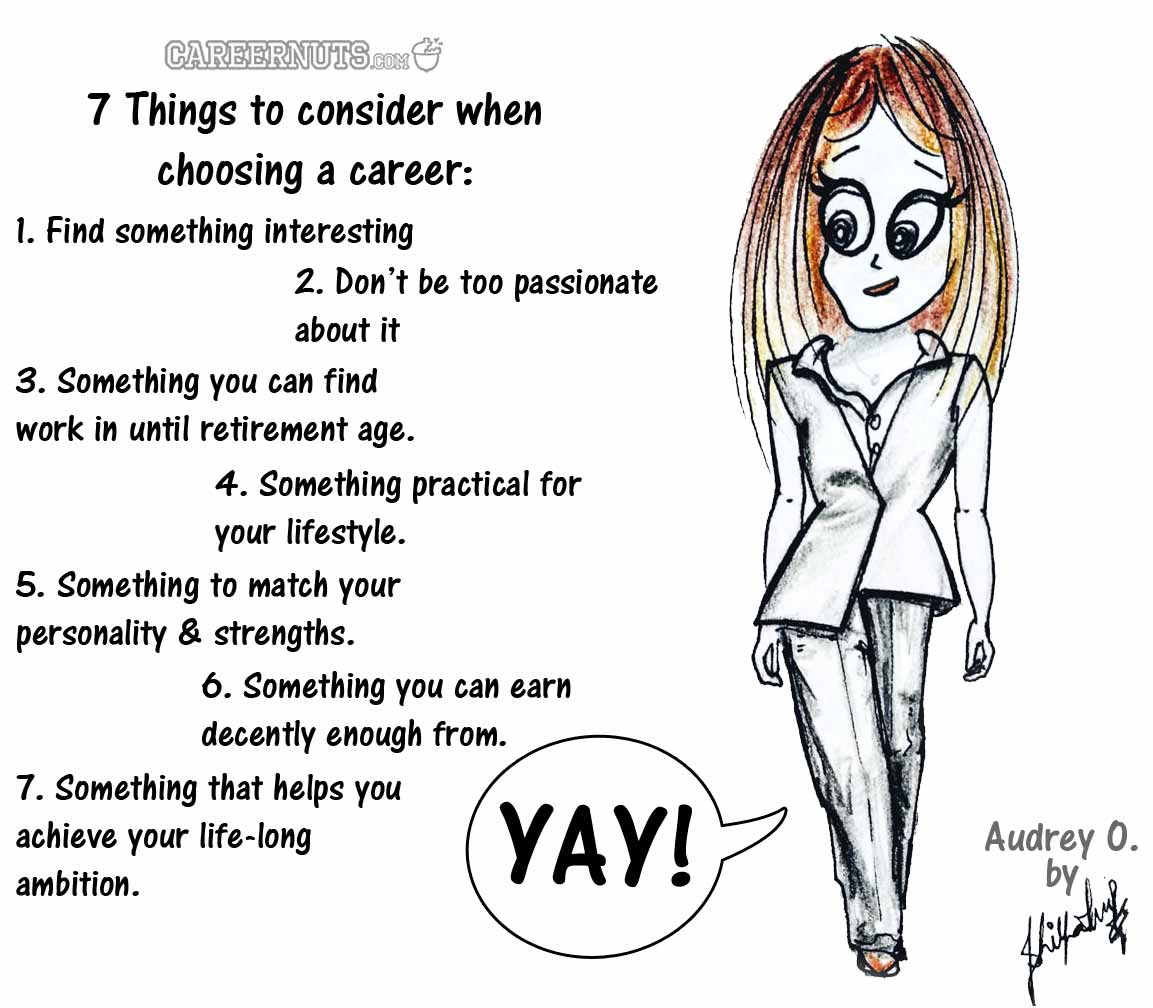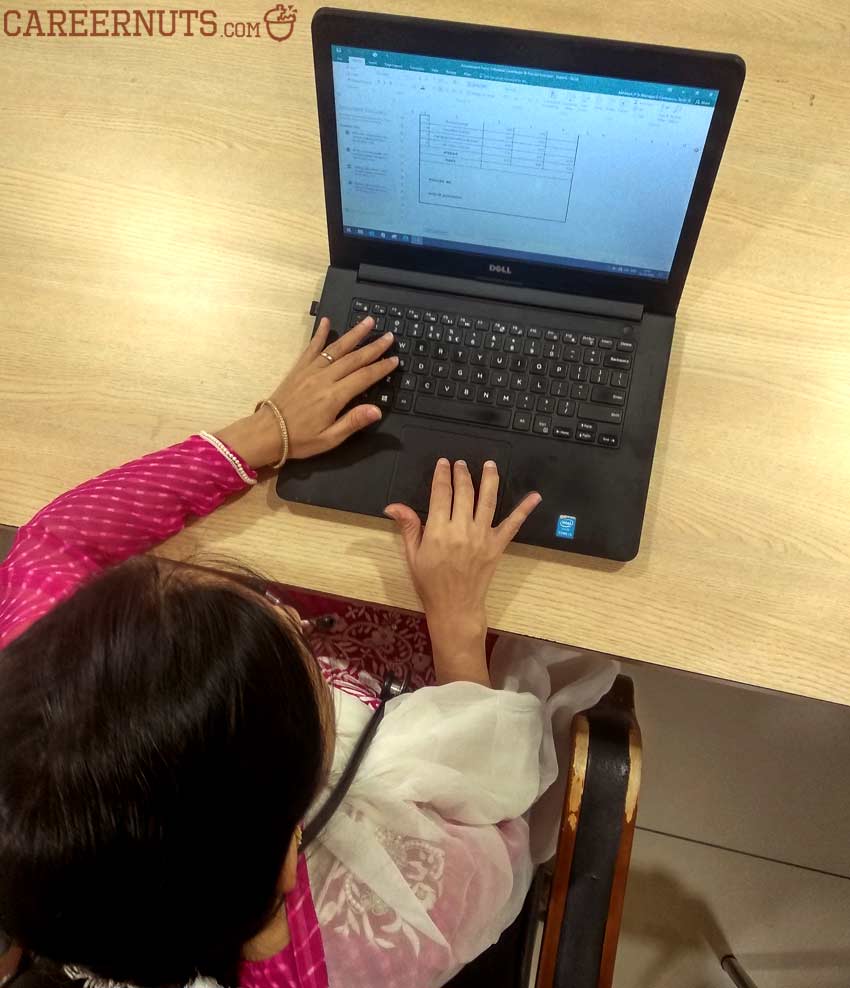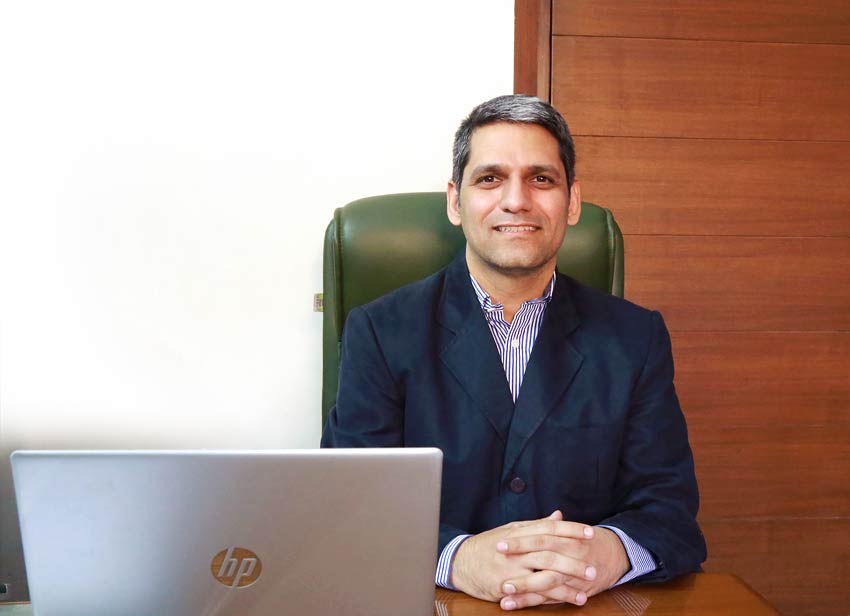Career selection is one of the most important decisions we make in our life, but it doesn’t have to be scary. Here are the top 7 important things to consider when choosing a career.
Choosing a career is easy when you’re five or even 14 years old, because you still have enough time to think it over and change your mind. But when it comes time to choose a college, then you have to really make the choice that you may have to stick with for the rest of your life. That’s because, especially in India, you can’t even take classes outside your major. Whatever major you choose in college goes on your resume, makes up your skill sets and there’s not much you can do to change it.
So how should one go about choosing the right career? It can be intimidating to learn about all the career options and know our strengths and be realistic about it all. However, you don’t have to worry. Selecting a career is something we all do, it’s a dilemma we all face at some point in your life. If you’re lucky, you’ll face it only once in your life!
After all I have some experience in this area! I selected my career path at the age of 13, and then changed it afterwards at the age of 30! That’s because what I selected as a child definitely didn’t take in all of the important factors to consider when choosing a career. So I have some practical advice for you.
Whether you’re a high school student, or looking to change your career after 30, here are 7 really significant points for anyone who’s trying to select the right career.
7 Things to Consider When Choosing a Career
1. Choose a subject that’s interesting enough for you to work on.
Regardless of what movies and magazines say, your career does not always have to be something that you’re absolutely passionate about. However, it definitely has to be interesting enough for you.
At work we spend at least eight hours a day. These working hours often extend to our personal lives, especially with work meetings, over-time and business travel. So ask yourself before you make the choice: is the subject interesting enough to work on until you retire? If you’re not really interested in what you’re working on, life can become somewhat of a living hell.
That’s why this is the most important thing you should consider when choosing a career.
2. You don’t have to be too passionate about it.
Now this one is contrary to all popular beliefs. If you ask most people how to choose a career, they’ll say choose your passion! As a youngster, you’re often made to believe that what we choose as your career should be something we are thoroughly passionate about. That you should turn your hobby into your career. But not everybody agrees.
Some people believe that your hobbies and your career should be kept separate, so that you can pursue your hobby in your free time. You don’t have to make money out of it. That is especially true if you’re passionate about something which may not earn enough to make a living. What you choose as a career also needs to have enough demand in the market.
Additionally, your career path should leave you with some separate hobbies that you can turn to, on a stressful day or when you’re just looking for a change of pace. So if you choose something that you are extremely passionate about, in the early years of your career when you’re still hustling, it may feel like you have no passion left for it anymore. It’s called burnout, which can bring mental stress.
Andre Agassi has been a world No. 1 tennis player. But in his autobiography he admitted, “I play tennis for a living even though I hate tennis, hate it with a dark and secret passion and always have… It becomes more than a job, it takes over your life.”
While you don’t have to turn every hobby into a career, your job should still be something that you like doing.
3. Your career should give you something to work on until retirement age.
In some careers, the retirement age is extremely early. For example, in modelling, acting, especially for females, or sports, a lot of people retire before they’re 40. So keep those things in mind before you choose your career.
Ideally, your career should be feasible to sustain until retirement age, since we all need something to do. We work not just to make money, but also to fill our time. Work gives us a sense of fulfillment and self-respect. Without any work to do, we all can feel lost, useless or sad. So make sure you know what you’re getting into. This is one of the biggest considerations in choosing a career that people often forget.
If your career of choice has an early retirement age, plan what you’ll work on after that, too. Similarly, if you’re choosing something that may give you too much free time, such as freelance acting or performance arts, be mentally prepared for those recurring periods of time when you may be out of work.
4. Your career should be practical for your lifestyle.
As we grow older, our likes and dislikes change, but we rarely completely change our lifestyle choices. If you don’t like working out now, a career that requires you to be extremely fit may not be the perfect one for you. Similarly, if you’re allergic to certain foods or environments, the career that makes you travel a lot is probably a bad idea. If you don’t like to live frugally, or work day and night without any expectation, being an entrepreneur would be a terrible choice.
So try to envision yourself as an adult, in your daily life as a professional, and see if you can envision yourself living like that. Here are two questions to consider when choosing a career: does your preferred career path sound practical for you? If you’re not willing to move out of your city, will you find enough jobs in your area?
5. Your career should be compatible with your personality and your strengths.
Knowing what your strengths are is the first step of choosing your career. Ideally, it should make the best use of your skills and personality traits. For example, if you are a creative person, it’s a great idea to choose something that gives you a creative outlet.
If you choose something that doesn’t match your personality, it may be extremely hard for you to cope up in the future. For example if you’re an introvert, a career in politics is probably not a great idea, or if you get stage fear, performing arts may not be for you.
Every career requires you to step out of your comfort zone in some way or the other, but it should not be so drastic that you’re unable to cope. Also understand what skill sets your career will use. Ideally, it should use nearly all your skills, so that you feel you’re able to give it your best. This brings fulfillment.
For example, being a model or beauty blogger makes you famous only for your face, so it can be frustrating for someone with an intellectual side.
To choose what is best for you, you also have to choose something that you are the best for.
6. You should be able to earn enough to make a living.
The hard truth comes at last. This is an advice on choosing a career path we hear from our parents all the time, but it’s the truth of life. Your job needs to be in something that earns enough for you to be able to pay rent, sustain your family and save up for retirement. Money is one of the crucial factors to be considered in career planning.
So for example, if you want to become an entrepreneur, but have little to no savings, it’s best to wait for a few years until you save up enough to quit your day job. Being practical is the best idea when choosing your career, as its one of the most important decisions you make.
7. Your career should be able to help you achieve your long-term goal.
We all have a dream. Be honest with yourself, what’s your dream? You have to choose what your expectations from your career are early on. What’s most important for you: money, job satisfaction or work-life balance? Are you looking for a simple, carefree life, or do you want money and/or fame? We don’t achieve all our dreams, but it’s important to have them, so you know where you’re going in life.
What do you think success is? It’s different for everyone. And everyone’s definition even changes over time. Most mid-career changes happen because people realize their job isn’t taking them where they want to be. This is one of the most crucial factors to consider when choosing a job.
Ideally, your career should bring you not only money, but also happiness. In the real world, no one is happy all day, every day. But if you choose a good career path, you will at least be happy once every day.
So it’s a good idea to know what your real ambition is, and then your career choice will become easier. You just have to consider options that you think will help you fulfill your long-term goals. And it’s okay to keep questioning it even after you have a job.
So I hope my advice (or essay!) on factors to consider when choosing a career was helpful. Have you considered all these things? Do you have any more questions? Let me know below, and I’ll try my best to answer them.
All the best!
You may also like: Is Career Counselling & Coaching Worth the Cost in India?

Shilpa Ahuja is the editor of Career Nuts. She has a Masters in Design Studies (MDesS) degree from Harvard University Graduate School of Design, class of 2011. Shilpa is an entrepreneur and founder of Shilpa Ahuja Digital Media, an online publishing company that includes HowtoGetinto-Harvard.com, a Harvard admissions guide and ShilpaAhuja.com, one of India’s most-read digital fashion magazines. She is also the creator of SlubShop, a trend-based online fashion store, and Audrey O., a comic series that represents the lifestyle of millennial women. She also has a bachelor’s degree in architecture from Chandigarh College of Architecture (B.Arch), class of 2007. She has worked in interior project management for The Park hotels and in graphic design and education technologies for Harvard Law School. Originally from Chandigarh, Shilpa enjoys art, creative writing, fashion and travel. Her art has been exhibited at Harvard Graduate School of Design and the Aroma Hotel, Chandigarh. Her work has been published in University of Fashion blog, Jet Airways magazine, Chandigarh Times and Indian Design & Interiors magazine. She is also the author of the book “Designing a Chinese Cultural Center in India”.









Thanks for the advice.
I truly appreciate this blog article. Many thanks again. Really cool.
Like!!
Can you also elaborate more on how to choose a career. namaste!
Very nice post. I certainly love this site. Keep it up!
I don’t get my career path now also
Expressability